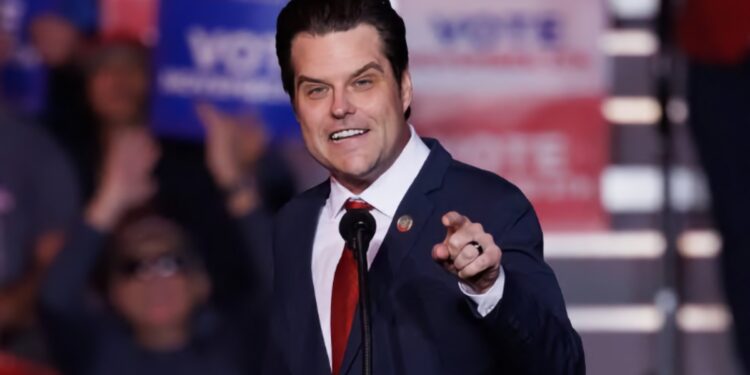There was a moment where it seemed Matt Gaetz would be our next US Attorney General. That passed quickly after it was clear he didn’t have the votes, and now he’s a news anchor on the OAN channel. But one thing that hasn’t changed is his enthusiastic support for legalized marijuana.
Recently on an episode of his show, he laid out some problems he sees in getting the legislation to the finish line.
“Here’s my theory for the case on that: Unfairly, marijuana has had to carry on its back the political burden of reparations. A lot of lawmakers in the Congressional Black Caucus favor reparations, and they want the revenue from marijuana taxation or licenses to function as the distribution system for racial reparations.”
Whether it’s unfair or not is a question for a different time, but he’s not wrong that marijuana legalization has been hampered by the girthiness of each bill’s social equity requirements. These additions, like a mandate for people of color to receive the first permits, or a certain percentage of tax revenue to funnel towards social equity programs, has made many of the bills nonstarters for Republicans.
“I just think that it divides the coalition, right? You obviously have a winning coalition with libertarian-leaning Republicans like me and Democrats who favor legalization. But when you insist upon marijuana legalization laws also doing as some have insisted—which is giving licenses to certain Black farmers or making sure that the revenue from taxation goes into Black communities more than into white communities—then you lose the libertarians, and I think that’s one of the reasons why we don’t have the safe banking law,” Gaetz said on his show.
This is not entirely a controversial stance to have, and one that many Democrats would agree with, including the authors of the extremely popular book “Abundance” that critiques the mazes of red tape in the way of progress in most of democratic legislation.
This is a difficult balancing act considering it does seem right for the people impacted by the war on drugs to have a seat at the table when the the playing board switches legality. But if it’s getting in the way of that initial step, then perhaps it’s something to be addressed further on down the road, once the journey begins.













